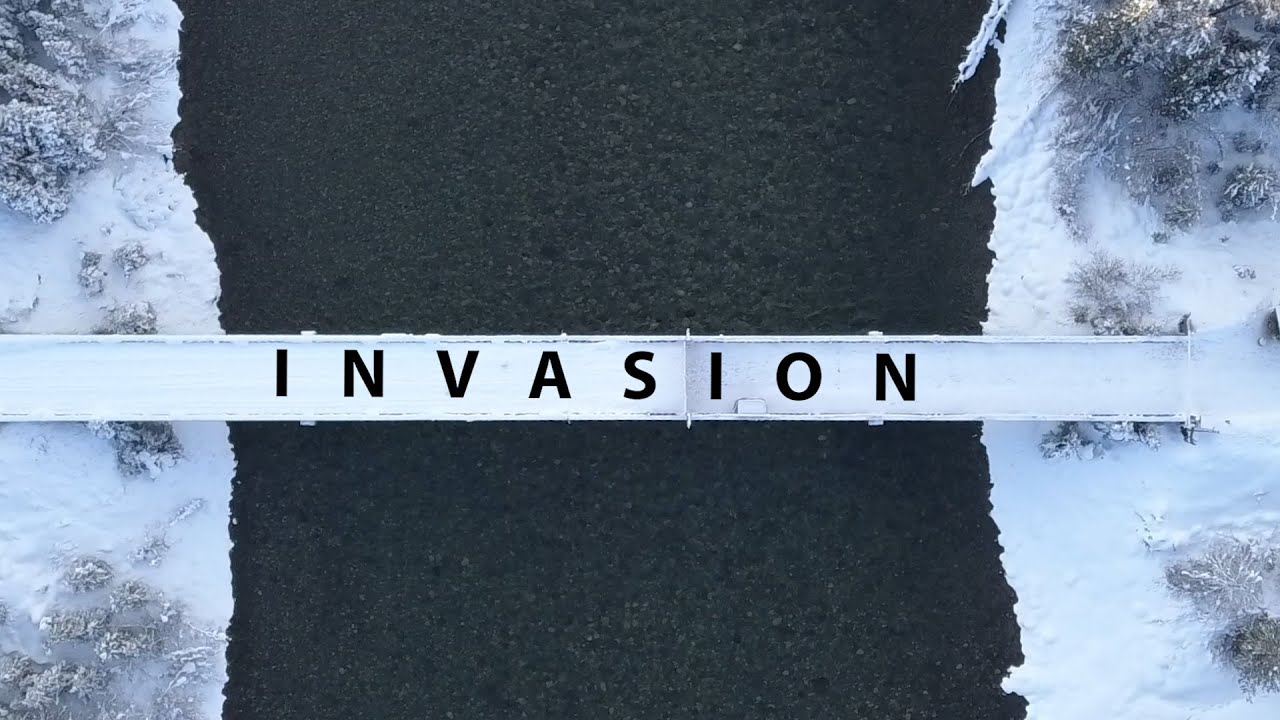SA200W-TUBE Report and Discussion - Module 3 - Group 7
Summary
TLDRThis talk explores the intersection of capitalism and colonialism in Canada, focusing on the Wet'suwet'en land dispute and the Coastal GasLink pipeline. It connects the conflict to historical exploitation of indigenous land for capitalist gain and the ongoing marginalization of indigenous communities. The media often frames it as a clash between economic development and indigenous resistance, but the deeper issue is the perpetuation of colonial power imbalances and cultural erasure, reflecting a system that prioritizes corporate and government interests over indigenous rights and sovereignty.
Takeaways
- 🌏 The script discusses the intersection of capitalism and colonialism in Canada, using the Wet'suwet'en land conflict as a case study.
- 📚 It references course readings by Naman (2012) and World (2016) to connect the ongoing land dispute to historical colonial practices and capitalist exploitation.
- 🛤️ The Wet'suwet'en Nation's opposition to the Coastal GasLink pipeline is highlighted, showing resistance to resource extraction on indigenous lands.
- 🏛️ The script points out that while elected band councils may approve projects, hereditary chiefs who hold traditional governance rights resist such developments.
- 🚔 The conflict has led to protests, blockades, and arrests, indicating the ongoing struggle between indigenous rights and state/corporate interests.
- 📈 The media is criticized for framing the issue as a clash between economic development and indigenous resistance, often overlooking the deeper colonial and capitalist contexts.
- 💼 The script emphasizes that capitalism relies on power imbalances, where corporations and governments prioritize economic interests over indigenous rights.
- 🏡 World (2016) is cited to explain how residential schools were tools of cultural assimilation, contributing to intergenerational trauma among indigenous communities.
- 🌲 The dismissal of hereditary chiefs' governance is seen as a continuation of colonial projects that undermine indigenous sovereignty.
- 🌎 The Coastal GasLink pipeline is likened to policies that treat indigenous land as a resource for exploitation, ignoring cultural connections.
- 🔄 The script concludes by stressing that meaningful reconciliation requires addressing the capitalist systems that perpetuate colonial dispossession and power imbalances.
Q & A
What is the main issue discussed in the script?
-The script discusses the intersection of capitalism and colonialism in the context of the Wet'suwet'en land conflict in Canada, specifically focusing on the Coastal GasLink pipeline project.
What is the Coastal GasLink pipeline project?
-The Coastal GasLink pipeline project is a natural gas pipeline intended to transport natural gas through the traditional territories of the Wet'suwet'en Nation in British Columbia.
Who are the Wet'suwet'en Nation and what is their stance on the pipeline?
-The Wet'suwet'en Nation are indigenous people in British Columbia, and they have been opposing the construction of the Coastal GasLink pipeline through their traditional territories.
What is the difference between elected band councils and hereditary chiefs in the Wet'suwet'en Nation?
-Elected band councils are a form of governance established by the Canadian government, while hereditary chiefs are traditional leaders who hold authority over the land according to Wet'suwet'en customs and laws. The hereditary chiefs have been the main opponents of the pipeline.
How does the script connect the pipeline conflict to colonialism?
-The script connects the conflict to colonialism by highlighting how the Canadian government and TransCanada Corporation are pushing forward with the pipeline despite indigenous opposition, which is seen as a continuation of historical practices of exploiting indigenous territories for economic gain.
What is the role of capitalism in the Wet'suwet'en conflict according to the script?
-Capitalism is seen as driving resource extraction on indigenous territories, perpetuating power imbalances established during colonization. The script argues that the economic interests of corporations and governments are prioritized over indigenous rights and sovereignty.
How does the script describe the media's portrayal of the conflict?
-The script suggests that the media often frames the conflict as a clash between economic development and indigenous resistance, portraying indigenous concerns as obstacles to progress and missing the deeper colonial and capitalist context.
What is the concept of 'intergenerational trauma' mentioned in the script?
-Intergenerational trauma refers to the lasting impact of historical traumas, such as the forced removal of indigenous children from their families to residential schools, which has left deep scars on indigenous communities and contributes to the ongoing conflict.
How does the script relate the Coastal GasLink pipeline to cultural assimilation?
-The script relates the pipeline to cultural assimilation by arguing that the dismissal of the Wet'suwet'en hereditary chiefs' governance is a modern form of cultural assimilation, where indigenous voices and rights are ignored in favor of resource extraction.
What does the script suggest is necessary for meaningful reconciliation with indigenous peoples?
-The script suggests that meaningful reconciliation requires addressing the capitalist systems that continue to marginalize indigenous communities and prioritize profits over indigenous rights and environmental stewardship.
What is the significance of the Wet'suwet'en conflict in the broader context of Canadian society?
-The Wet'suwet'en conflict is significant as it challenges Canadians to critically examine the deeply embedded structures that value economic interests over indigenous rights and to consider what a society that values indigenous sovereignty might look like.
Outlines

Cette section est réservée aux utilisateurs payants. Améliorez votre compte pour accéder à cette section.
Améliorer maintenantMindmap

Cette section est réservée aux utilisateurs payants. Améliorez votre compte pour accéder à cette section.
Améliorer maintenantKeywords

Cette section est réservée aux utilisateurs payants. Améliorez votre compte pour accéder à cette section.
Améliorer maintenantHighlights

Cette section est réservée aux utilisateurs payants. Améliorez votre compte pour accéder à cette section.
Améliorer maintenantTranscripts

Cette section est réservée aux utilisateurs payants. Améliorez votre compte pour accéder à cette section.
Améliorer maintenantVoir Plus de Vidéos Connexes

5 terms to know regarding the Wet'suwet'en pipeline dispute

INVASION

"We don't want that pipeline," says Wet'suwet'en hereditary chief

What is Settler Colonialism?| Postcolonial Concepts| Postcolonialism| Postcolonial Theory

Artless Collective Presents - Chloe Dragon-Smith: Walking in Two Worlds

DATA CENTERS NO BRASIL E O COLONIALISMO DIGITAL
5.0 / 5 (0 votes)
